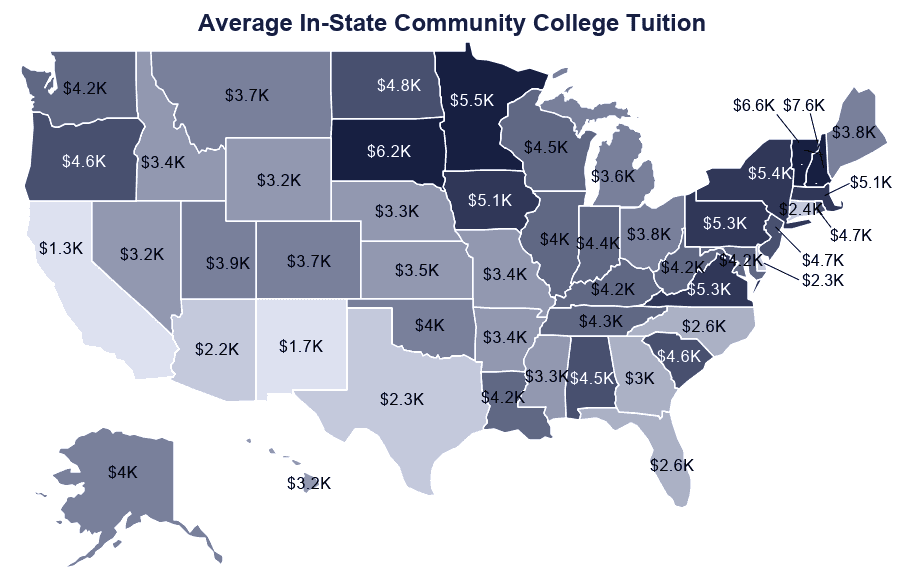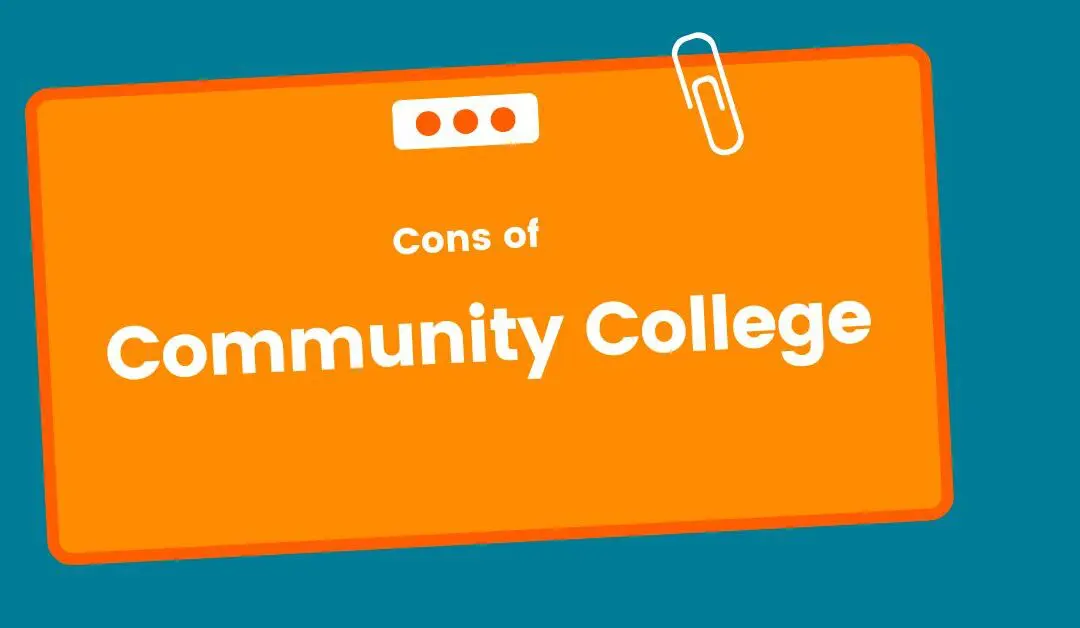Are you considering community college? Before making any decisions, it’s important to weigh the pros and cons of each option. In this blog post, we take a look at some of the key cons of community college. We hope this article provides you with some valuable insights that will help you make an informed decision about your education.
Cons of Community College: Students can be Unmotivated.
I preface this by saying most students at community colleges are motivated and engaged in their education. Still, there is a propensity for community colleges to have students that can be disengaged from their education. Some students couldn’t care less about their education, making it difficult for others trying to stay interested.
These uninterested students often don’t have any desire to use the credits they earn beyond community college. This can make group projects difficult, as the more invested students often have to do all the work themselves.
Cons of Community College: Lack of Campus Life
Competitive Sports Teams
The NCAA Division 1 football scene generates billions of dollars for universities throughout the United States. College athletics is a powerful tool to attract and recruit qualified applicants with an affinity for the school sports teams.
At a four-year college, the athletics program promotes social life and is an excellent medium through which students can meet and generate relationships.
Community Colleges Lack a Social Life
Think about it, It’s Saturday morning, and you’re waking up in your dorm to head down to the Coliseum and watch the USC Trojans take on UCLA. You and your friends are decked out in USC gear, walking to the stadium with a mix of students, friends, faculty, and locals. There’s just something special about the college game day atmosphere.
A significant disadvantage of community college is the

Testimony of Student We Work With
As I walked down Figueroa with my friends, the energy was palpable. Everyone was in good spirits, decked out in USC gear and ready to cheer on the Trojans. The Coliseum was packed with students, alumni, and fans of all ages. It was such a fun atmosphere to be a part of; everyone was excited and cheering for the team.
It was a close game, but in the end USC emerged victorious. As we walked out of the stadium, everyone was still pumped up from the game. It was an amazing experience to be a part of college gameday; the energy and excitement is something that can’t be replicated anywhere else.
Lydia (2020)
Attending Community College Limits Professional Relationship-Building
It can be more difficult at a community college to find friends and socialize with people in the same way as you would at a four-year college. This is because community colleges lack the same social events, funding, and activities that a four-year college does.
Lack of Greek Life and Social Scene
For example, community colleges typically do not have a robust Greek life system like four-year colleges, making it harder to find people with shared interests.
Additionally, community colleges tend not to have football or varsity sports teams that bring the junior college together.
As a result, many people feel isolated and alone at community college and opt not to attend community college in pursuit of the atmosphere and social life a four-year school provides.

I will say that many community colleges have competitive sports teams in the pure athletic sense. In other words, if we take out the social life element of collegiate athletics, community colleges boast some reputable numbers in the sports they play.
Typically, students interested in transferring will find themselves in a community college program before playing at a four-year university. In fact, baseball players are well known for opting to attend the JUCO (Junior College) route because they are eligible for the MLB draft earlier than NCAA Division 1 scholarship players.
Cons of Community College: Limited Program Offerings
Limited Resources, Funding, and Programs
I was hesitant to place this on the list because I believe it is not much of a CON when speaking exclusively about community colleges. A junior college is widely recognized as a stepping stone to four-year public and private colleges and universities.
No student expects their local community college to offer the same number of programs as their local university so I view listing it as a con as more of a formality.
You’ll Probably Need More Education
Community college courses offer professionals basic training, associate degrees, and certificate programs. If you are looking for a job requiring a bachelor’s degree, your college path continues to a four-year school.
Are you Transferring?
Community college students can set themselves up to become transfer students, but there are also community college students who are not interested in transferring to a four-year university.

Some students are enrolled at the community college level because they want to complete a certificate or associate degree program that community colleges offer.
What is your General Education and Degree Path?
Community colleges provide an excellent choice for completing basic courses required for most 4 year degrees. A bachelor’s degree does not guarantee a job opportunity, but it will open up several more doors than those with only a certificate, associate degree, or high school diploma.
Most community colleges offer the same programs, especially when examining the General Education (GE) disciplines.
Some community college programs are specific to industries like nursing, EMT, and welding and offer certificates that can allow students to enter the workforce while remaining enrolled in GE courses that they can transfer later.
Community Colleges are Cheaper, but is it Worth It?
One positive, however, is that community college costs significantly less than university, and junior colleges are known for their incredibly low price per unit courses (See Map).
In other words, colleges and universities base tuition on the number of units you are taking, and the difference in unit price between community college and traditional college is significant.

Some students elect to take their Math 101 and English 101 courses at a community college because it is cheaper and is counted for college credits the same as those taken at the university level.
The cost is even more significant if you analyze a community college and a private university. There are also costs associated with college life (i.e., on-campus housing, food, transportation) that can dictate whether or not it is worth it.
Conclusion
In conclusion, attending community college is a perfectly acceptable pathway to acquiring your bachelor’s degree. Oftentimes, the cons of community college are overblown and exaggerated because four-year universities have a vested interest in cementing their roles as higher education institutions.
If you want to acquire a bachelor’s degree but do not want to break the bank, then attending community college is the best option. Attend your local community college.
Even though you miss out on the vibrancy of campus life at a four-year college, you can experience the atmosphere of four-year colleges after transferring for your junior and senior years.
Overall, the cons of community college are evident. Still, I believe community college is a beneficial opportunity for those students who take advantage of the low-cost and high-engagement atmosphere.
Regardless of academics, the main issue with community colleges lies in the social and campus atmosphere. Students who are unmotivated (the vast minority) can be detrimental to other students.
Community colleges offer limited social and professional networking opportunities, which universities are extremely useful for propelling students to a prospective job opportunity or career path.





